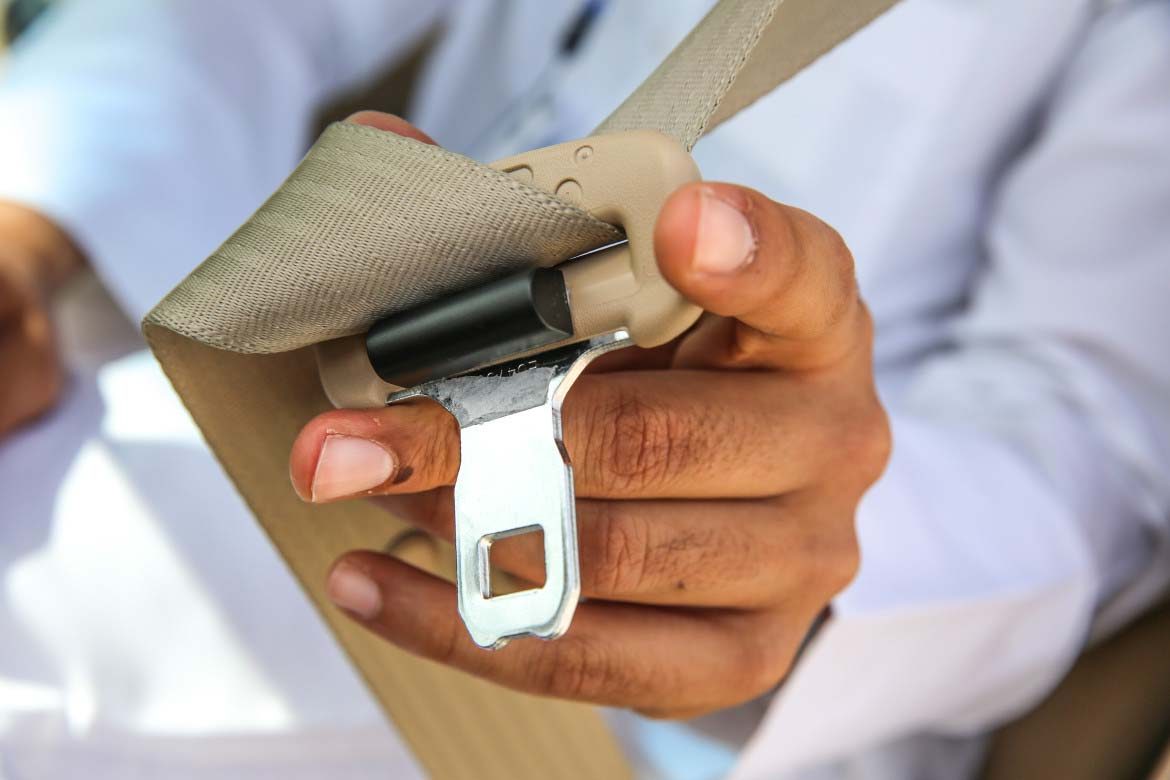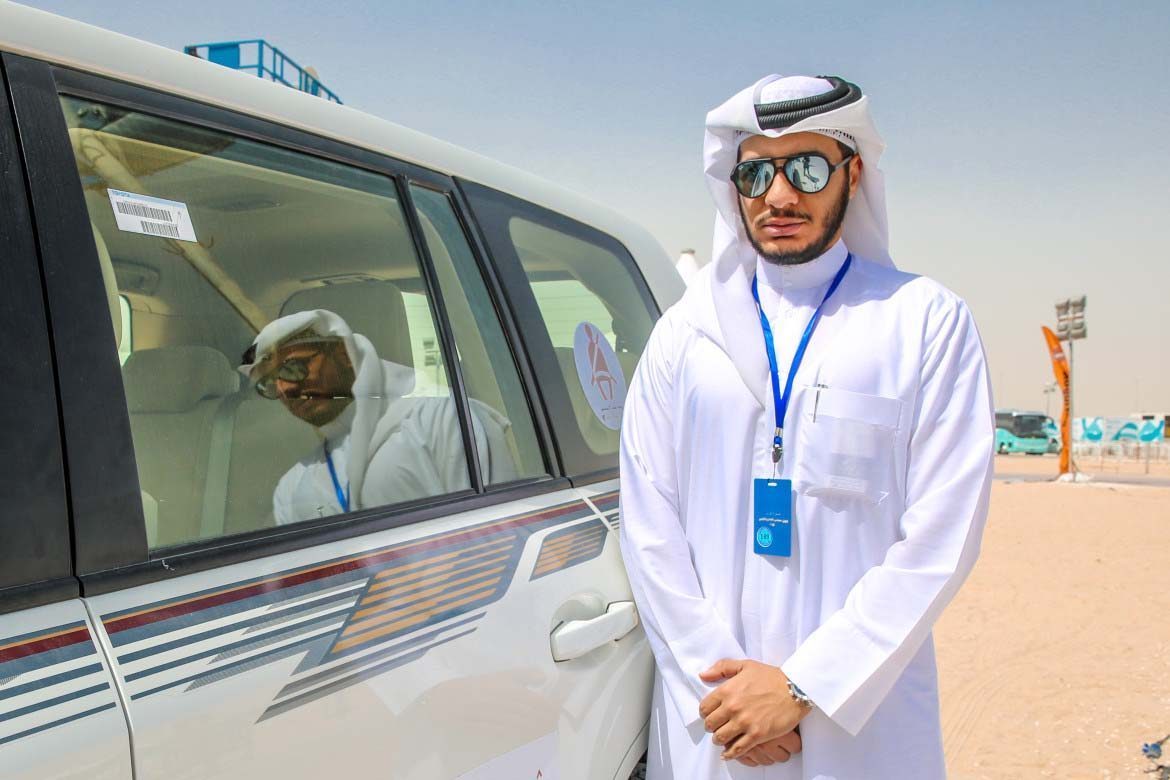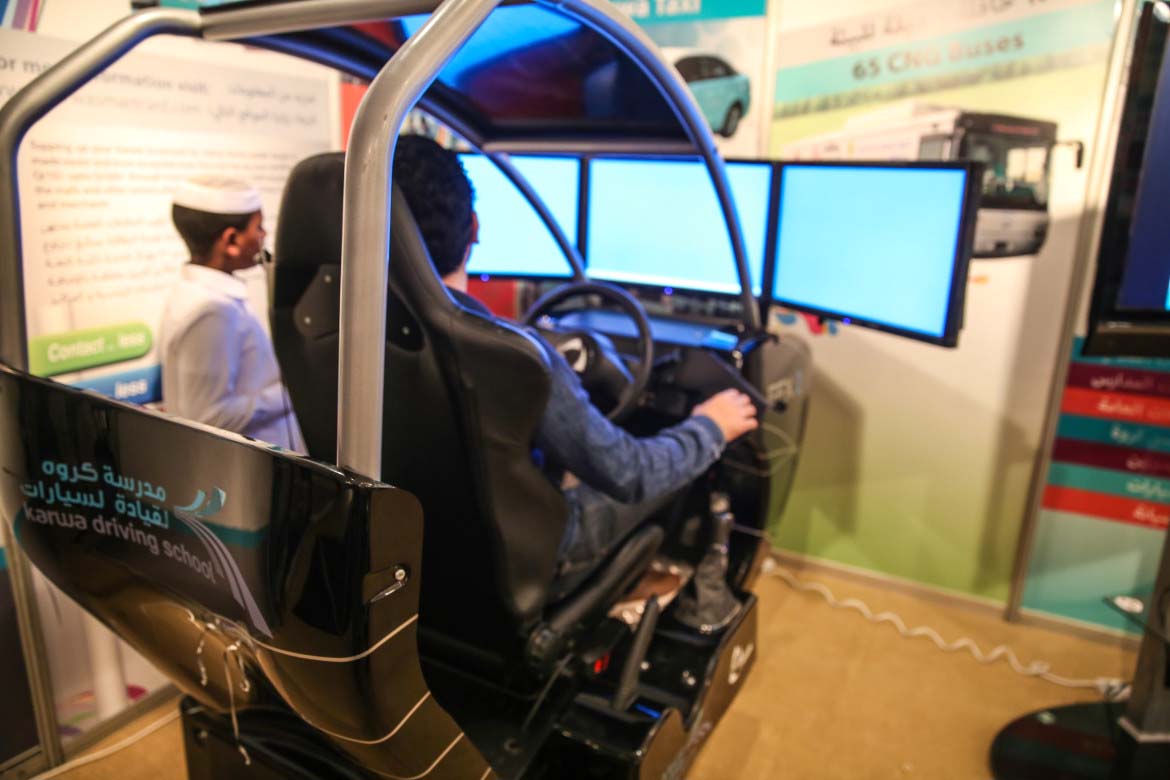
As Qatar kicks off the 31st edition of GCC Traffic Week under the slogan “your decision determines your destiny,” a new device is being launched here to compel motorists to buckle up before driving.
The device, called Lifebelt, is a three-part electronic system that can be fitted to any vehicle by a technician. Once installed, it sends a radio frequency signal that prevents ignition until the driver and front-seat passenger put on their seatbelts.
If the seatbelts are undone once the car is in motion, the vehicle would continue running, but the radio, navigation screen, CD player and other electronic features would be automatically disabled until the belts are re-fastened.
Lifebelt has been around for a number of years, and became more widely-known after its inventor Robert Allison appeared on US network ABC’s Shark Tank program five years ago, appealing for business professionals to invest in it.
The product has been rolled out by one automotive company in Texas, and will now be available in Qatar for the first time.
Doha launch
Zaid Qassim, the founder of Doha-based technology company Ajyaltek, told Doha News he bought the rights to market the device internationally and was launching it in Qatar as part of a campaign to reduce the number of deaths from road accidents.

Qassim’s company has a booth at the traffic week venue Darb Al Saii in Al Sadd, where Lifebelt is installed in a Land Cruiser loaned to him from Toyota.
The 21-year-old Canadian said he was inspired after a number of his own friends and acquaintances died in traffic accidents here:
“Qatar has one of the highest road death rates per capita in the world. There was a time when I was going to three funerals a week of young people as a result of car crashes. I just thought we have to do something about this,” he said.
After watching a re-run of the episode of Shark Tank that featured Allison pitching for investment, Qassim contacted the inventor and struck a deal, giving Ajyaltek exclusive international marketing rights for the product, which he plans to eventually roll out across the wider region.

Qassim said he wants to encourage younger people particularly to think about buying it as a way of enforcing a seat belt habit while driving.
The Lifebelt, which costs QR550, can be ordered through Ajyaltek’s website by sending an email to the company to arrange purchase and installation.
The initial package operates the driver’s seat and front passenger seat. Additional systems can be bought for passengers sitting in the back seat.
Seat belt campaign
By law, all drivers and front-seat passengers are required to wear a seatbelt in Qatar.
To drive this point home, the launch of Lifebelt will soon be followed by a wider public road safety awareness campaign on the importance of seatbelt usage here, in conjunction with the Traffic Department.
Under the slogan Qatar Vision Zero, reflecting the ultimate target of no road deaths in the state, the campaign aims to enlist the support of more than two dozen ambassadors and diplomats in Qatar and other public figures to help change the perception that seat belts are for “old people,” Qassim said.
“We will use them to get across the message that using a seat belt is a manly thing. It’s not just for old people. Everyone needs to buckle up,” he added.

Research published earlier this year from the Qatar Road Safety Studies Center (QRSSC) at Qatar University found that young men aged 20 to 30 years old made up an overwhelming 90 percent of the fatalities in the state as a result of traffic accidents.
Not buckling up while driving is considered a contributing factor to many road-related injuries and deaths in Qatar.
Late last year during a workshop, a leading Qatar doctor revealed the extent of the problem, focusing particularly on unrestrained children in vehicles.
According to Dr. Ayman El-Menyar, director of the Integrated Clinical Research Unit of HMC’s Trauma Center, who examined traffic accidents involving children from 2010-2012:
“Eighty-six percent of the children who died during those years had injuries so severe that they died even before reaching the hospital, or at the scene of the crash.
Forty percent of victims of all transport-related injuries, and 80 percent of victims who died from their injuries, were 15 to 18 years old. The data also shows that only 1.2 percent of the injured passengers and drivers were using seat belt or a car seat.”
While children under the age of 10 years old are legally not allowed to sit on the front seat, this is often not enforced.
Traffic week
This week’s traffic week activities at Darb Al Saii are free and open to the public.
The various stalls set up at the venue include ones from international automobile companies like Toyota and Harley Davidson, and booths showcasing work done and gear used by Lekhwiya, Al Fazaa, the Civil Defense Unit, the K9 Unit and various other branches of the country’s police force.
There are also daily lectures on accident prevention and responsible driving, as well as several handicraft booths, restaurants, a fun zone for children and separate camel, pony and falcon displays.
Other offerings include free art workshops for children; seminars on driving decisions, traffic mistakes and motorbike risks; demonstrations by local driving schools; and a speaker series featuring guests from Hamad Hospital, the Qatar Lawyers Association, Qatar Red Crescent, the Ministry of Awqaf and Islamic Affairs and the Qatar Awareness Group, according to Qatar News Agency.
Activities at Darb Al Saii run until Saturday, from 8am to noon, then 4pm until 10pm.
Source: dohanews.co





